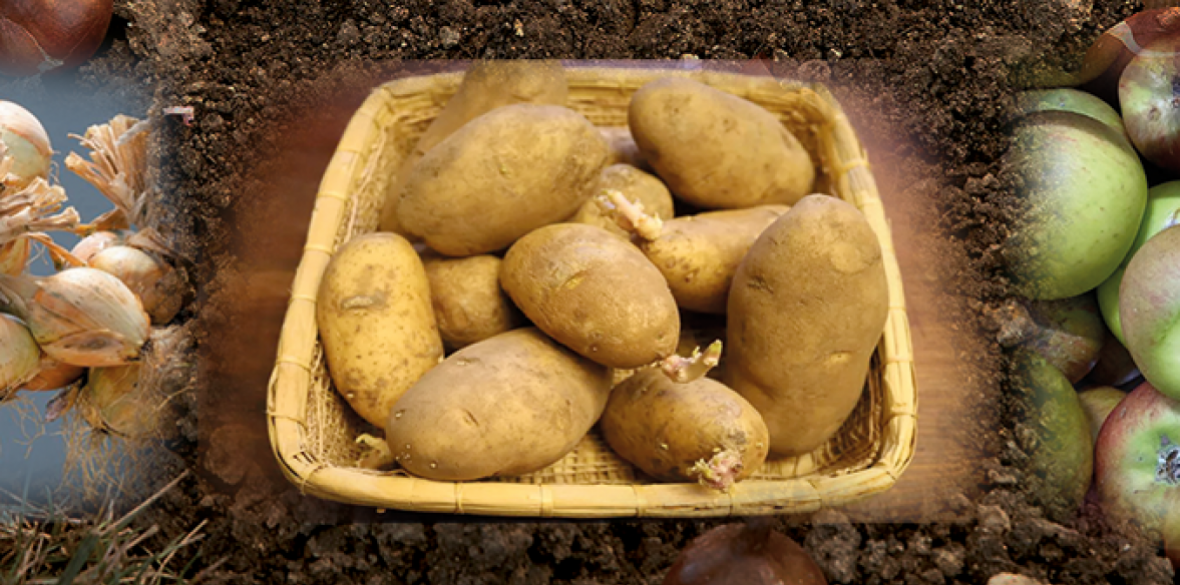This is the last article you can read this month
You can read more article this month
You can read more articles this month
Sorry your limit is up for this month
Reset on:
Please help support the Morning Star by subscribing here
IF you’re trying to store onions and garlic over winter, you probably already know that you mustn’t keep them anywhere warm or damp otherwise they’ll go off.
But you also have to stop them getting too cold, as that can trigger them into growth.
Somewhere around 2-4°C is about right. They also need to have plenty of air around them, to prevent disease spreading.
Mine do well hanging from the garage rafters in a net bag, at least until the very cold weather begins, when I move them indoors.
By far the best way to store apples is in a defunct fridge or freezer. An unplugged freezer which still has a functioning door seal not only maintains a fairly steady, cool temperature and a helpful level of humidity, but it also keeps the mice out.
I wrap each fruit in newspaper, so that if one goes rotten it doesn’t quickly infect its neighbours and place them on shelves.
You can often find redundant fridges on Freecycle, or just by asking for one on social media.
In most areas they cost money to get rid of, so people are delighted to meet someone who actually wants them.
Otherwise, if you’ve got any space in the salad drawer of your still-working fridge, apples will keep there for a surprisingly long time in perforated plastic bags.
Remember, though, that not all apples are intended to be stored, so look up the details of the variety you’re growing; they may be ones that need eating within a couple of weeks of picking.
The part of the potato plant that we eat, the tuber, is a storage organ, so its whole point is to last through the winter.
Again, some varieties store better than others, but with the right type you should be able to keep them for months.
Spuds need to be kept in conditions which are dry, cool, safe from frost and rodents and dark, so putting them in a sack, made of paper or hessian, is the best method.
Don’t wash them before storing them, but remove, once dried, any big bits of mud.
The most important thing with potatoes is to check on them regularly, maybe once a week, to remove any that are rotting before they ruin the whole lot.
Root crops, such as carrots, beetroots and parsnips, can be left in the ground until needed, covered with a mulch to keep the frost off.
The only drawback with that system is that other animals, including slugs and mice, might eat them before you get a chance to.
If you’ve got the space, in a shed or garage, a better way is to place them in boxes, with their foliage trimmed off and arranged in layers so that they’re not touching each other.
They should be completely covered and surrounded by a slightly damp material, such as coir or horticultural sand.
Remember: never try to store any fruit or vegetables which are damaged — they’ll just rot.










